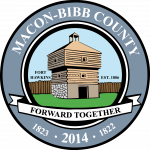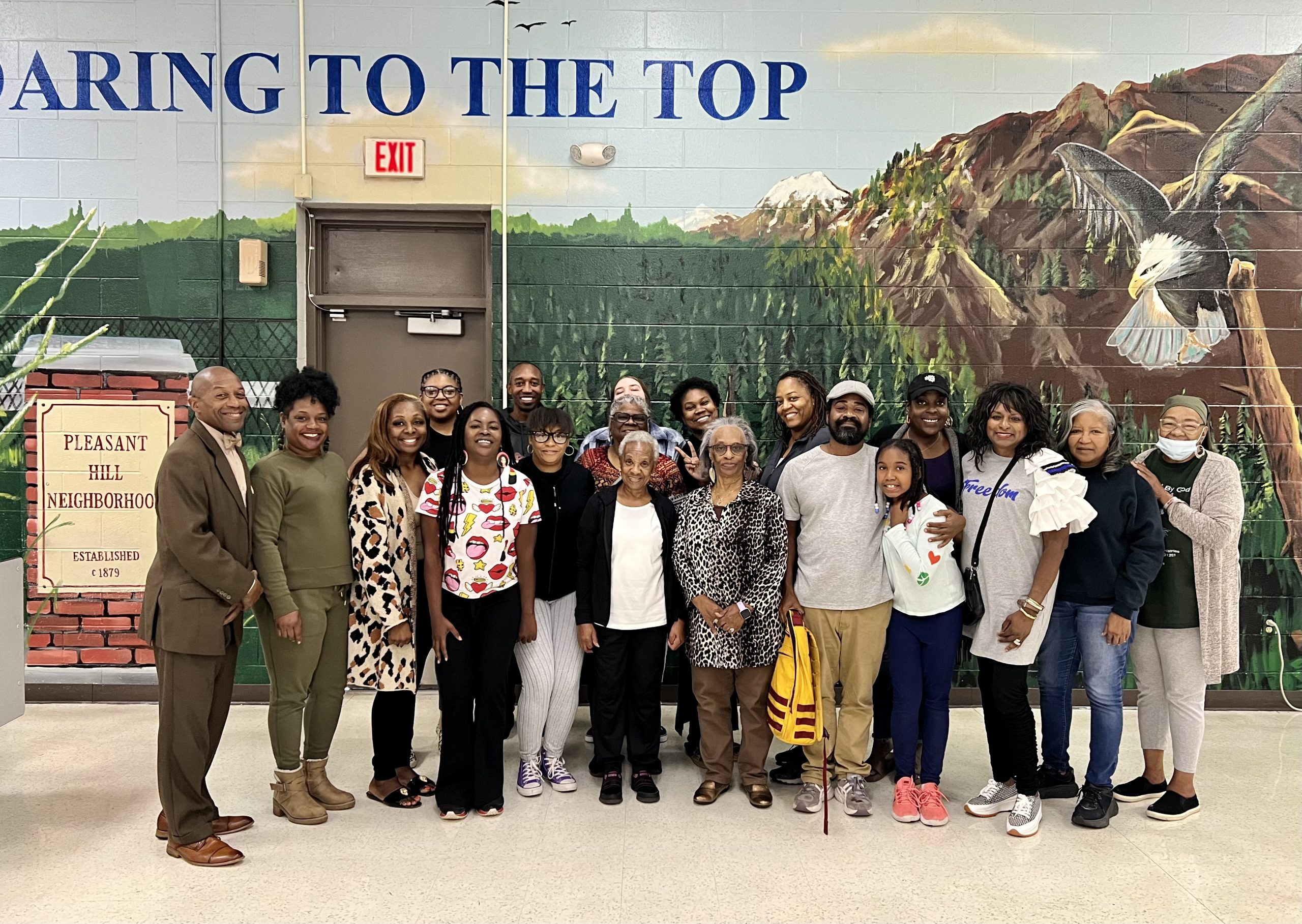On Tuesday, March 12, the Pleasant Hill Neighborhood Organization (PHNO) and Macon-Bibb County learned they would be able to take a major step forward in reconnecting the neighborhood thanks to a $500,000 federal grant.
The grant was submitted through the community’s participation in the Reimagining the Civic Commons (RCC) learning network, a national initiative which aims to demonstrate how public spaces can connect people of all backgrounds, cultivate trust, and create more resilient communities. Awarding of the grant was announced by U.S. Senators Jon Ossoff and Raphael Warnock through the Inflation Reduction Act’s Neighborhood Access and Equity (NAE) Program.
Historic Pleasant Hill was cut in half by the construction of I-75 more than 60 years ago, and that – in conjunction with other policies like redlining and disinvestment in the once vibrant neighborhood – have led to its steady decline, making it unequal to surrounding areas.
“This grant is an important opportunity to begin to address those harms,” says Tonja Khabir with the PHNO. “The transparent work we’ve done the past two years is one other neighborhoods can use to navigate resource management, government relations, community planning, and accountability.”
“The RCC process has given us the chance to truly come together around the common cause of reconnecting our neighborhoods and creating a stronger community,” says Alex Morrison, Executive Director of the Macon-Bibb Urban Development Authority (UDA). “What we’ve learned and begun putting in place are simple but powerful changes in our infrastructure that will draw people together, to right the wrongs of the past.”
The grant will be used to begin mitigating the impact of I-75 by creating an urban design plan for sidewalks, streetlights, transportation, and transit, as well as a plan for a new commercial district along Walnut Street, the lone vehicle connection across the interstate. The plan would focus on engagement, public infrastructure, zoning changes, and anti-displacement strategies.
“Our goal is to further create a sense of belonging and community cohesion for legacy, current, and future residents of Pleasant Hill, and to better understand the history of land loss and destruction of commercial opportunity as a result of interstate development,” adds Khabir.
Working together, the PHNO, Macon-Bibb County, and other stakeholders can create appropriate commercial opportunities that prevent encroachment into residential areas and create a more livable community. The plan would also highlight areas where infill housing could be added and provide a means for building and accessing the properties that would complement the community and increase residential density.
“We’re going to focus on the history, current state of affairs, and our futures as a community, from commerce to housing to culture,” she says.
According to Khabir, receiving the grant is a direct result of the development of the Pleasant Hill Strategic Plan, which was funded by the Downtown Challenge Grant and is based on feedback and engagement of more than 400 community members. It lays out several strategic priorities, including:
- Encouraging Business development
- Neighborhood Infrastructure
- Addressing Blighted Properties
- Access to Safe Streets and Reliable Transportation
- Quality Recreation and Public Spaces
- Interrupting violence and fostering public safety
- Celebrating Arts Culture and History
About Reimagining Civic Commons in Macon
Macon is one of 12 participating cities in the Reimagining the Civic Commons learning network, a national initiative which aims to demonstrate how public spaces can connect people of all backgrounds, cultivate trust, and create more resilient communities. Macon’s Civic Commons team is composed of representatives of city government, philanthropy and local nonprofits, and the team joined the network in 2020. Macon aims to be an example for the national initiative of how an innovative, strategic, and community-led approach to public space investment can lead to a more engaged, resilient city.
“Participating in the civic commons network gives us a toolkit and process to ensure quality public space that drives value and equity in our community,” says Alex Morrison, the project’s co-lead convener and Executive Director of the Urban Development Authority. “This effort is helping us reconnect with the type of design that our city founders laid out.”
The Macon-Bibb County Urban Development Authority is the convening agency for this effort. Active and engaged partners working together include the AARP, Bike Walk Macon, Causey Construction Consulting, the Community Foundation of Central Georgia, Friends of Rosa Parks Square, JBK Southern, Inc., Macon-Bibb Community Enhancement Authority, Macon-Bibb County Consolidated Government, Main Street Macon Christmas Lights Extravaganza, NewTown Macon, Ocmulgee Heritage Trail, the Peyton Anderson Foundation, Rhythm and Jazz, WT Designs, the JPB Foundation, the John S. and James L. Knight Foundation, The Kresge Foundation, and the William Penn Foundation.

